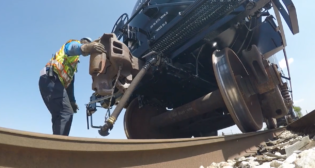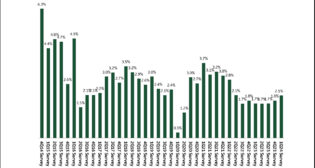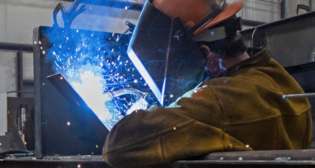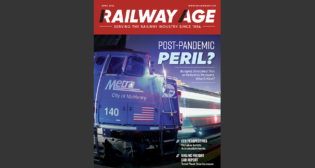
Dan O’Neal, 81
Written by William C. Vantuono, Editor-in-ChiefLong-time Greenbrier Cos. executive and board member, and former Interstate Commerce Commission Chairman A. Daniel O’Neal died at home on Oct. 10 at the age of 81.
Dan O’Neal served Greenbrier for more than 30 years. He was Director of Greenbrier’s Gunderson subsidiary from 1985 to 2005. He also served in various executive positions with Greenbrier, including as Chairman of Greenbrier ntermodal from 1984 to 1994, Chairman of Autostack from 1989 to 1996 and Chairman of Greenbrier Logistics from 1996 to 1997. O’Neal became a member of the Greenbrier Board of Directors at the time of the company’s initial public offering in 1994 and held that position until 2016. He is credited with helping pioneer the market for the double-stack intermodal railcar that is still built at Gunderson today.
Prior to his affiliation with Greenbrier and Gunderson, O’Neal served as Transportation Counsel to the U.S. Senate Commerce Committee chaired by Senator Warren Magnuson. In 1973, President Richard M. Nixon appointed O’Neal a Commissioner of the Interstate Commerce Commission (ICC), where he served until 1980 including, from 1977 until his departure, as its Chairman after appointment to that seat by President Jimmy Carter.
After leaving the ICC, O’Neal served as a partner in a business law firm, and it was there he began his relationship with Greenbrier. He continued to be civically involved throughout his life, serving in key roles with the Railway Supply Institute, Washington State Freight Mobility Board, Washington State Transportation Commission, Puget Sound Partnership and many other non-profit organizations.
“For more than three decades, Greenbrier was the beneficiary of Dan’s keen insights on federal affairs and his deep understanding of the often inscrutable ways of operating inside the Beltway,” said William A. Furman, Chairman and CEO. “He was a trusted advisor and confidant to many. We deeply appreciate Dan’s numerous contributions to Greenbrier, particularly his warm friendship, and offer our deepest condolences to [his wife] Diane and his family. He is remembered as a dear friend, admired colleague and a devoted husband and father.”



